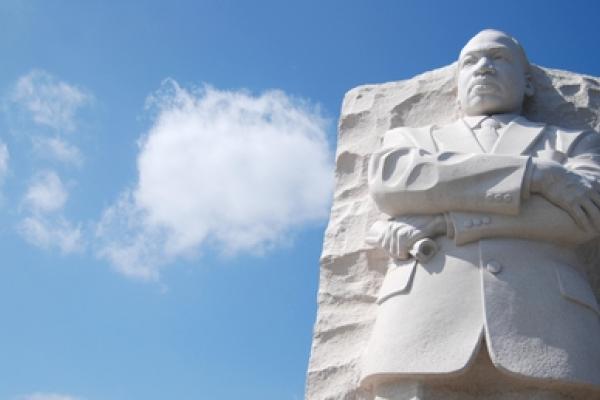Editor’s Note: Jim Wallis’ latest book On God’s Side: What Religion Forgets and Politics Hasn’t Learned About Serving the Common Good is sparking a national conversation of what it means to come together on issues that traditionally divide the nation. Bloggers Adam Ericksen and Tripp Hudgins are having that conversation here, on the God’s Politics blog. Follow along, and join the discussion in the comments section.
Benedict of Nursia is on my mind this morning as I ponder what it is that Jim Wallis is trying to accomplish with his new book, On God's Side. Adam Ericksen pondered the virtues of baseball, winning, and losing in his post from earlier this week. Adam questioned the metaphor. What do we do with our losers? How can we all win?
What would it mean if people of faith began transferring their human identities from class, racial, and national loyalties to a global identity in a new beloved community created by God?
~ Jim Wallis, On God's Side
Today I'm wondering about where Jim was when he started pulling all of this together. Jim shared that he went on retreat (a good practice, in my humble opinion) to gather his thoughts for this new book. He went to a monastery (also a good practice, in my humble opinion). He prayed the hours. He wandered the grounds. He spent some time in silence. He read the Narnia books and gave some serious thought of C.S. Lewis' Aslan. All of this led to a question, well, many questions, but this question I've pulled out is what caught my attention. What if, indeed, Jim. What if we were to do this thing ... the beloved community?
It is no surprise to me that this question would emerge while Jim was at a monastery. Of course it would. And that he riffs on Dr. Martin Luther King, Jr., in a way is also wonderfully telling. "Our goal is to create a beloved community and this will require a qualitative change in our souls as well as a quantitative change in our lives," said Dr. King. Our souls must change. So too must our lives. Dr. King said much about the beloved community. So too did Benedict of Nursia.
There's so much to say here. I'm a little stumped. The beloved community is the Church, but it is exemplified by the monastery where people relinquish their individual control of their worldly goods. Monastics take vows to pray and work together. There's a shared rhythm of life. There is a shared mission. It's a challenging and difficult life, and not all Christians are called to it. Obedience, stability, conversion of life. If we want to be the beloved community, then the we must avow ourselves to such a Rule. Indeed, we must give up our personal or private identities to the service of all.
But how do we do this as a culture, a global church?
Read the Full Article

